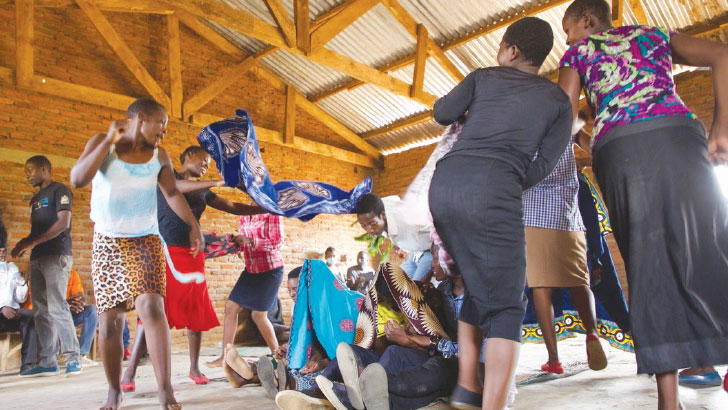Drama for development
Drama has for a long time been seen as a source of fun. People go to theatre clubs and venues to see actors imitate real life situations just for pleasure.
But now the same stage drama is being used to achieve something more meaningful—development.
Through a project called Supporting the Implementation of Good Financial Governance Innovativeness through Theatre for Development being implemented by Chancellor College (Chanco), a constituent college of the Univesirty of Malawi, drama is the medium to promote good public finance management and accountability.

The project’s leader Zindaba Chisiza, who is also associate professor in the Department of Fine and Performing Arts at Chanco, said they decided to use drama after realising that in many ways, arts are a great vehicle for promoting equality.
He said: “I am a Theatre for Development [TfD] practitioner and the history of TfD will show that it has been used to address a range of issues from HIV and Aids, disability stigma, malaria, Covid-19, gender and community development.
So, it is not strange that we would use arts to explore public finance management and accountability.”
Chisiza said the project is youth-focused and uses drama, film and radio drama to engage young people in Balaka, Karonga, Dowa, Zomba, Lilongwe and Mzuzu City to take an active role in demanding accountability and transparency from duty-bearers with regards to poverty reduction, development plans and budgeting at community, regional and national levels.
According to Chisiza, the project is funded by Deutsche Gesellschaft für International Zusammenarbeit (GIZ) under the Public Finance and Economic Management Programme.
Madalo Dzanja, one of the youth participating in the project, said using the arts to encourage transparency and accountability is effective as it promotes people’s participation.
“It gives people room to reflect which brings more thoughtful action in the end,” she said.
Dzanja said using drama, actors were able to demonstrate how real life situations and how people handle such situations.
“Those watching learn a lot from the action and apply the same in their real situations,” she said.
Dzanja said the effectiveness of drama in such an important activity is evident in the way local people respond.
“The masses are responding very well. I was actually pleased that locals were able to open up and discuss various issues affecting their developmental activities,” she said.
Dzanja also said though the drama initially excited the youth, they eventually discovered how effective it was in demanding accountability from their councillors, legislators, chiefs and other duty-bearers.
“The overall win for me is to see the confidence levels of locals go up and openly demand accountability from their leaders on development plans and activities in their areas without fear,” she said.
According to Chisiza, the project started in September 2020 and ends this month.
He said: “This month, we will be implementing a multimedia campaign that includes a broadcast of a five-part radio drama series on four radio stations [Zodiak, Times, Yoneco, Tuntufye and Livingstonia] as well has airing five documentaries on three national TV stations, namely Zodiak TV, Times TV and Mibawa TV.”
Chisiza said initially the project had three phases which were community interventions, university theatre and a national dissemination event.
He said: “However, Covid-19 happened so we changed several things. The community theatre interventions are implemented by young people from Chancellor College, who work with young people selected from various youth-based organisations in our target communities.
“These community-based youths work with us to explore issues; create arts together and implement community theatre interfaces.”
Chisiza said the project ends this month, but is ready to spread to other districts depending on funding.





